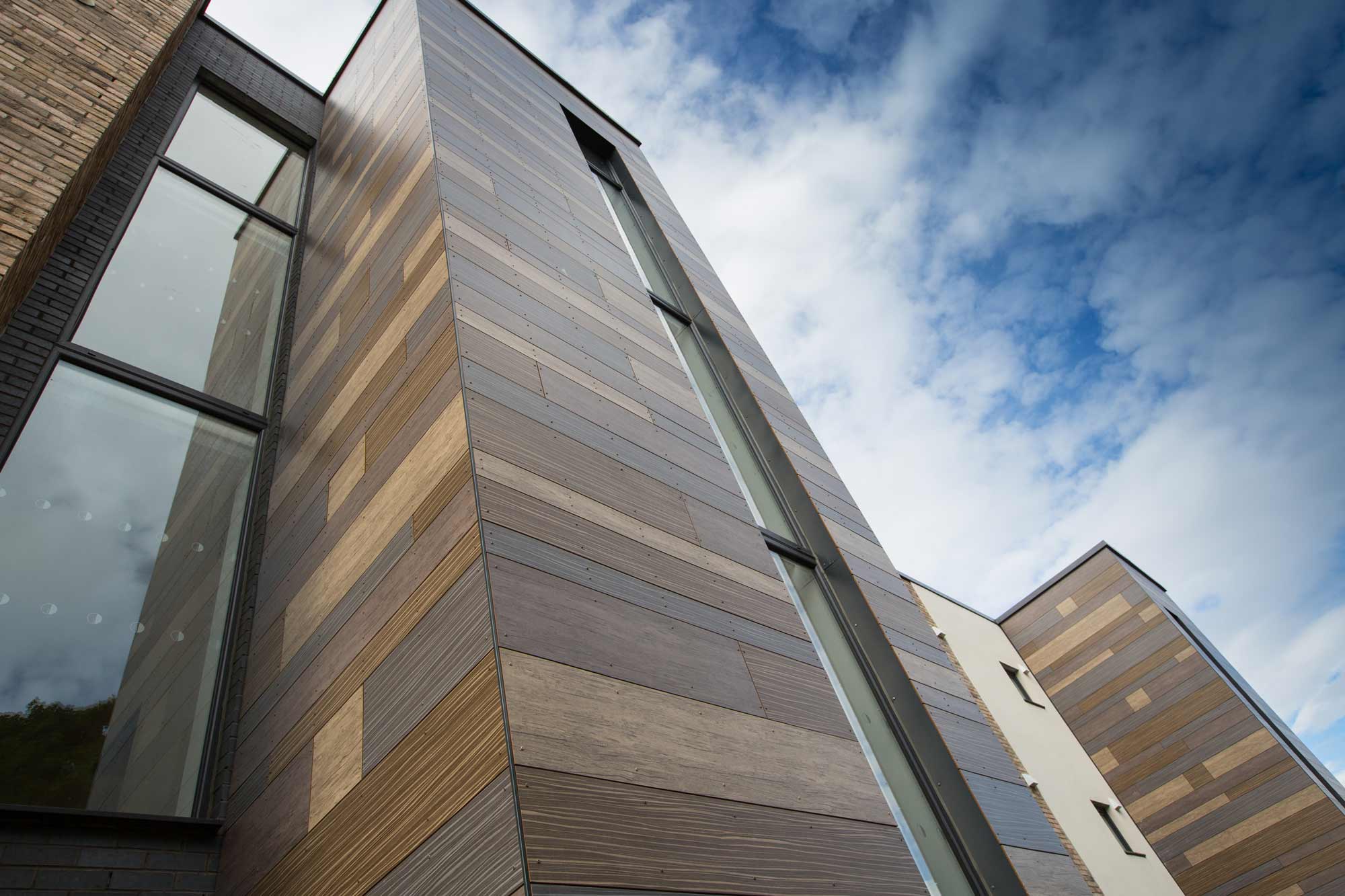Background
Government has stated that the UK needs an additional 120,000 homes each year. The housing sector faces many challenges in meeting this target, including skills shortages, an ageing workforce, poor productivity, low output and low affordability. The three-year AIMCH project aims to tackle all these challenges and become a major player in the housing sector by identifying and developing industrialised offsite solutions needed to meet current and future housebuilding demands. These will be trialled on live housing projects, with successful new methods then being commercialised and brought to market in volume.
It is expected that AIMCH will result in new digital design tools, manufacturing advancements, improved near-to-market offsite systems and lean site processes. The ultimate goal of the project is to support the sector by delivering the 120,000 target for the same or less cost than traditional craft methods, which are built 30% more quickly plus have the ambition of 50% reduction in defects. The project has potential to impact on 35,000 homes being delivered by AIMCH partners across the UK, each year.
Stewart Dalgarno, AIMCH Project Director and Director of Product Development at Stewart Milne Group
"AIMCH is a fantastic R&D project. It is a housing industrialisation project about bringing mainstream offsite construction to marketplace, I believe it will be a game-changer for the sector. Our focus within AIMCH is about delivering mainstream panelised offsite construction methods that are the same cost or less cost than conventional methods of construction…"
Click the video to learn more
- Metrics, benchmarking and prototyping
- Onsite monitoring
- Advanced MMC prototyping
- Digitalisation and manufacturing
- MMC design standardisation
- Guidance on how to create digital manual
- Advanced MMC manufacturing
- Commercial viability
- Augmented reality proof of concept for roof tiling
- Whole life costing and embodied carbon
-
Metrics, benchmarking and prototyping
One of the first outputs from the AIMCH project has been a research report looking at how the housebuilding sector evaluates and monitors productivity. Published by AIMCH in August 2019, the report makes recommendations on how businesses of all sizes could use data in a more effective way to demonstrate the value of modern methods of construction (MMC) and to respond to future sector demands.
-
Onsite monitoring
In addition to reviewing how productivity is measured, AIMCH will produce productivity reports to identify improvements in site labour, plant productivity, reductions in onsite waste and in the cost of quality repairs. AIMCH productivity lessons will be shared between partners and industry, as part of the project’s dissemination activities.
-
Advanced MMC prototyping
Another area of the AIMCH project is to develop and trial advanced MMC systems on live developments. Over the past year Barratt Developments PLC has developed and erected six closed panel timber frame units on a live development near Warrington
-
Digitalisation and manufacturing
AIMCH aims to produce a single seamless digital system (an Enterprise Resource Planning or ERP system) that will allow businesses to process offsite manufacturing from concept design to completion. This will demonstrate an increase in efficiency, quality and a reduction in lead-time, downtime and processing time.
-
MMC design standardisation
Through design standardisation there is real potential to significantly drive quality, commercial and consumer benefits. The three AIMCH partner developers Barratt, Stewart Milne Group and L&Q have the ability to review their housing collections and look for design synergies, where there are benefits from pooling knowledge across their housetypes and design range. -
Guidance on how to create digital manual
For housing industrialisation to be effective, there needs to be good governance and control of the design of the product. At present, the car industry demonstrates this particularly well, with very clear product design manuals and user documentation. During their studies, the team have identified the requirements for the housebuilding industry.
-
Advanced MMC manufacturing
Throughout the AIMCH project, research will be carried out on the current and predicted future state of timber offsite panelised manufacturing systems. This will identify gaps and make recommendations for the adoption of technology, through the development of new automated and robotic manufacturing methods.
-
Commercial viability
AIMCH is also ensuring that any of the proposed solutions are commercially viable across a range of development types and will advise on cost viability against current construction methods.
-
Augmented reality proof of concept for roof tiling
Innovative of site solution for roof tiling using augmented reality worker technology to improve productivity.
-
Whole life costing and embodied carbon
Commissioning of research to evaluate the WLC benefits of panelised MMC, over masonry & assessments to calculate the carbon footprint of AIMCH homes built in panelised MMC and masonry.

